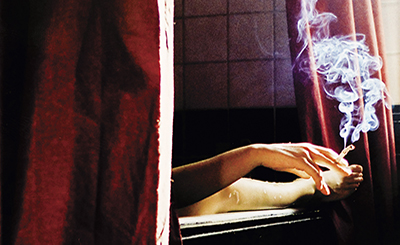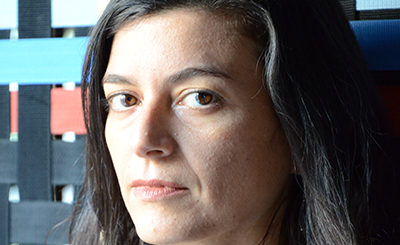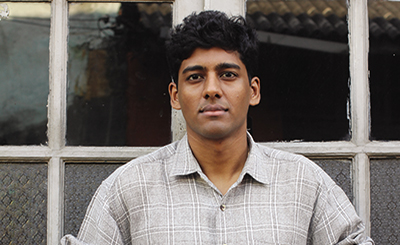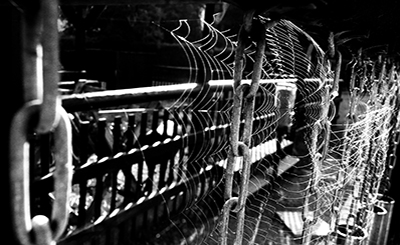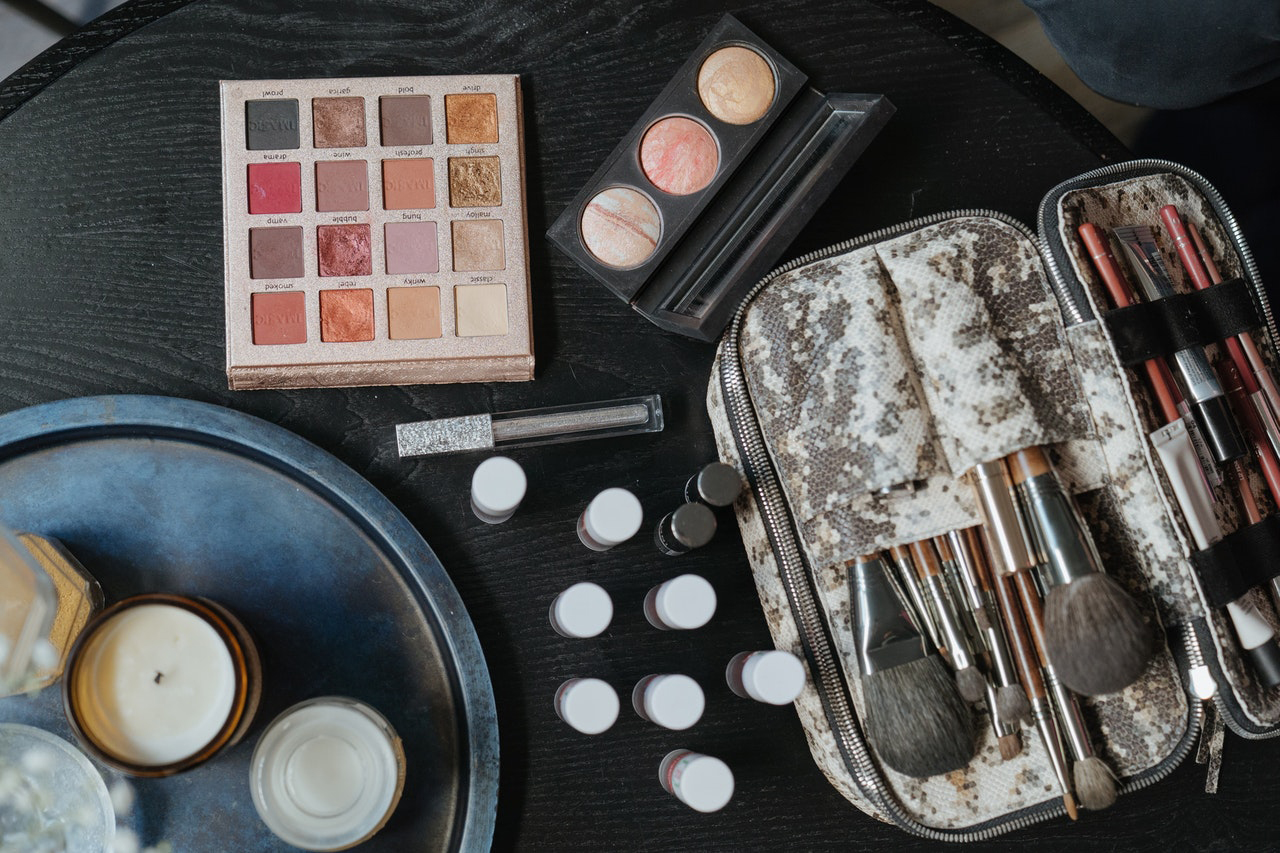
Curated by Palash Krishna Mehrotra
Mirrors and a Mannequin
Mirrors always held Raymond’s attention. At every opportunity he admired himself in them. At home he had half a dozen — a full-length Belgian one in the bedroom, a hand mirror next to his bed, another set into the wall in his drawing room, one over the washbasin in his bathroom, another oval one fixed along the corridor wall and yet another just above the kitchen sink. He had considered fitting one on the ceiling of his bedroom, but the cost had been too prohibitive.
Even in his car he admired himself in the rearview mirror whenever he could. And after he parked at the basement of his office building, he glanced at his oblong reflection in the sleek cars he passed by or he bent low to catch his profile in the external rearview mirrors. With his cabbage smooth forehead and receding hairline, he was not particularly handsome. But he could not avoid the compulsion to look at himself.
Fittingly, he worked as a counter salesperson for a cosmetic outlet at a shopping mall. It was his job to sell all manner of lotions and makeup — from lipsticks to rouge, from nail polish to fairness creams, from colognes to herbal shampoos. At his counter he felt at home as no one gave him a second glance when he cast yet another quick look at his own reflection in the hand mirror at his disposal.
Given his expertise at admiring his own face and form, he was good at his chosen profession. He often topped the sales figures calculated at the end of every month and was the object of envy, especially of the other salesgirls who worked beside him on the counter. The sales manager naturally considered him an asset and, as was the custom, periodically offered him an incentive package of some of the free samples and slow moving cosmetics after they had gathered dust in the shelves or store room. Most of these were for women and the sales manager assumed that he gave them away to his girlfriend, his mother or his sisters.
But Raymond had little use for these cosmetics, apart from the aftershave lotion that he dabbed on occasionally. And he had no girlfriend or sisters. His aging mother lived in a distant suburb and had little use for cosmetics. And he was not particularly companionable with the counter girls or his male colleagues. He took the gift packages home with him. They lay in his cupboard unopened.
After a while the packages grew into a substantial pile and took up two entire shelves.
He didn’t know what to do with them. He could of course sell them at a discount, but he didn’t need the money and the thought of selling them also embarrassed him. It was one thing to sell them professionally at his counter, but quite another to dispose them off privately. And anyway, who could he sell or offer them to? He expended some thought on this little quandary, but soon gave up on finding a solution.
Meanwhile, he won the top prize at the Christmas and New Year inhouse sales competition, much to the envy of all his colleagues. But the prize was not a cash bonus or an increment in his salary. It was a large gift hamper of more cosmetics — made by Versace and Lakme, Elizabeth Arden and L’Oreal and other such giants in the business. Raymond didn’t know what to do with them. They spilled beyond the two shelves of his cupboard. And in time his flat began to smell like a perfumery.
In time the mixed fragrances permeated all the rooms — even the kitchen and the bathroom. The smell seeped through everything — his clothes, his shoes, his bedsheets, even his morning tea. The olfactory admixture was not pleasant. There was a sickly sweetness to it like a stale bouquet of flowers. For the first time in his life he felt a faint sense of unease when he made the customary inspection of himself in his bedroom mirror. His longish nose and thinning hair, the intermittent acne, the ingrown nail in his big toe which appeared to grow to monstrous proportions. But it was the longish nose which twitched the most at the scented invasion — an invasion that followed him everywhere like a darkening cloud.
At the counter, a few weeks later, he became a little confused between bottles of Lavender Mist and Exotic Jasmine.
He began to sleep poorly.
At night he often woke up in a cold sweat to the shriek of a castrated musk deer.
To the thrashing of a sperm whale as it left a trail of ambergris.
He thought he felt the semen of bulls in his slicked down hair and saw a red liquid oozing out from crushed beetles.
Even his blanket smelled of a furry animal.
And his jacket and shoes like a tannery.
In the morning, as he soaped his face and shaved at the washbasin, he smelled the unmistakeable odour of crushed fishscales and heated tallow. Even the translucent bubblewrap used for packaging in the shop reminded him of boiling tallow.
He realized he had to quit the job when one night, when all the others had left the mall, he began to commiserate with a pouting, wide-eyed, naked mannequin.
Personal Effects
When her older brother Mario was killed in an accident at an oilwell in Oman, Serena received condolences from all the residents of St. Jerome’s. Most of them had never met Mario, and the few who had, recalled him as a quiet, withdrawn but hardworking young man. Serena, a secretary with a mining company, had never been close to her older brother, and in fact hadn’t met him for close to seven years, but she accepted the words of sympathy and commiseration with a suitable display of teary grief. Her husband Nixon, from a prominent family in Salcete, who had actively disliked Mario, displayed a similar veneer of regret. When visitors called, he recalled the sterling virtues of Mario. “More than a brother-in-law, he was like a brother to me,” he said, dabbing his eyes with a white handkerchief.
Apart from dabbling in low level municipal politics and cadging money from his aging mother, Nixon did nothing else, though he pretended to be always busy. Even with all those idle hours in hand, he told Serena he could not accompany her to Oman as he had to attend a crucial meeting of office bearers where he believed he could win the coveted post of a municipal councillor. Serena, Mario’s last surviving relative, left for Oman, grumbling about the leave she had been forced to take and trying to recall when she had last met Mario. At the airport in Muscat she was warmly received by two of Mario’s closest friends who drove her to the oil company’s plush guest house, after Serena declined to stay at her brother’s flat.
After the funeral service the following evening at the Ss Peter and Paul Catholic Church in Ruwi, Serena met her late brother’s other friends and colleagues besides his Arab bosses, who were both polite and sympathetic, extending the company's full support to her.
That support and compensation package turned out to be quite substantial in the form of a draft made payable to her. Serena could not quite believe the sum when she converted the dinars into rupees on her cellphone calculator.
When Mario’s two friends took her to his flat, her incredulity grew when she saw all her brother’s possessions which now belonged to her: the two-door refrigerator, the leather-bound sofa set, the Henkel-Harris chairs, the Royal Worcester and Spode crockery and cutlery, the Philips sound surround system, the Sony TV and DVD player, a Blackberry cellphone, an SLR camera and an assortment of other electronic products.
Unable to suppress her excitement, she asked one of her brother’s friends if Mario also had a car. She bit down on her lip when he said that Mario, like most of the other employees, hadn’t needed one as the company bus and fleet of cars was all that they used or needed Still, her heart lifted a little when he told her that Mario’s bank manager had asked her to contact him.
The bank manager, also an Indian, was polite and solicitous. And her eyes widened when he revealed the substantial amount saved up by her brother. She felt a posthumous love for her brother grow as the manager totted up the figures in Mario’s savings account, his fixed deposits left to her as the sole survivor and more riches in the form of share certificates and debentures.
The company made all the arrangements to ship his personal effects to her house in St. Jerome’s and after a couple of days of uninhibited shopping in the grand malls of Oman crisscrossed by escalators and lined with plush, glass-fronted shops, Serena flew back to Goa where an excited Nixon picked her up at the airport. His first remark to her was: “I hope the shipping company doesn’t damage any of our stuff.”
The stuff arrived by truck from Mormugao harbour within the promised three weeks, customs cleared and professionally packed in foam-lined cartons. And though it was nearing nightfall, Serena and Nixon eagerly tore open all the boxes, their eyes sparking like flintstones as each possession came into view. They carefully inspected all their belongings, now spilling out beyond their ground floor flat into the gateway.
It was past midnight when they sank into their new sofa, exhausted but euphoric, till it occurred to Nixon that there was something missing.
‘No AC?’ he asked Serena.
‘No. That belonged to the company.’
‘So what? They could have given it as a parting gift,’ said Nixon.
‘Yeah. But they didn’t. Bloody Arabs,’ Serena said.
More from The Byword
Comments
*Comments will be moderated




